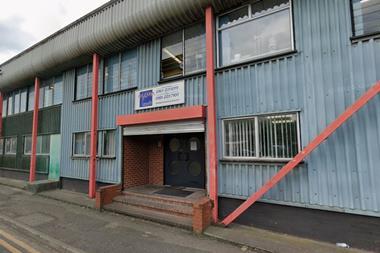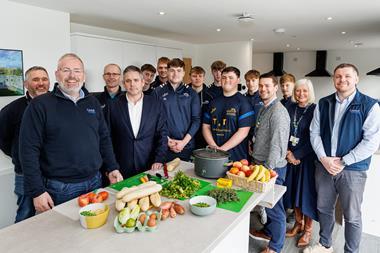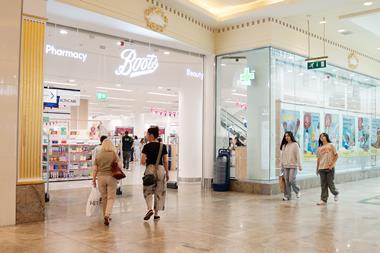Big Food Group chief executive Bill Grimsey insisted the company's long-term prospects were healthy after posting a set of trading figures described by most City analysts as "dismal".
Like-for-like net sales for the eight weeks to March 1 were down 3.7% at Iceland Foods and down 2.1% at Booker, although the average basket size at Iceland rose. A fall in sales over Christmas continued in the New Year.
Grimsey said: "Over Christmas, we weren't aggressive on price across the board at Iceland, but we had tactical devices to bring people in such as deals on kitchenware. It was the wrong approach."
"But you need to put this into context. What matters is our strategic outlook."
He rejected suggestions Iceland was still struggling to define itself: "We've been nothing but consistent in our approach and delivery since we announced the strategic review last year. We are still focusing on our core customer base, but we've identified four different store formats because a one-size-fits-all strategy is the wrong one."
There was a mixed response from the City.
Schroder Salomon Smith Barney analyst Dave McCarthy said tailoring store formats to fit local demographics was something everyone else in the industry was doing and was a positive step.
However, others felt Iceland faced an uphill struggle given competitors had a more appealing convenience format and were also investing heavily in refurbishing larger stores.
"Iceland had a core customer base which was a lower demographic but they seem to be losing it," said one analyst. "There is nothing within the offer to compel people to go into the stores."
In addition to maintenance capital spending in the next three years of £200m, Grimsey said an extra £80m will be spent on Iceland, £43m on Booker, £17m on Woodward, and £12m on home shopping.
The money would be generated through a mixture of sale and leaseback, internal cash generation and debt from bank and capital markets.
{{NEWS }}
Close menu
- Home
- Retail & Wholesale
-
Products & Suppliers
- Back to parent navigation item
- Products & Suppliers
-
Product Categories:
- Back to parent navigation item
- Product Categories:
- Alcoholic drinks
- Bakery
- Cereals & breakfast
- Cheese
- Chicken & poultry
- Chocolate
- Confectionery
- Crisps, nuts & snacks
- Dairy
- Fish
- Fresh produce
- Frozen
- Household
- Meat
- Own Label
- Sauces & condiments
- Seasonal
- Soft drinks
- Vaping
- Vegan & plant-based
- World foods
- Suppliers
- People
- Reports & Data
-
Topics A-Z
- Back to parent navigation item
- Topics A-Z
-
Popular topics:
- Back to parent navigation item
- Popular topics:
- Cost of living crisis
- Crime
- Deposit Return Schemes
- Finance
- Government & Regulation
- Health
- Inflation
- Loyalty
- Marketing
- Mergers & Acquisitions
- New Product Development
- Sourcing
- Supply chain
- Sustainability & environment
- Technology
- Ultra Processed Foods
- Vaping
- A-Z all topics
- Content by type:
- Events
- Ask iA (beta)
- Subscribe now
Sign in to comment on this article
Not logged in before? Register for FREE guest access today.
You will be able to:
- Read more stories
- Receive daily newsletters
- Comment on stories
Advert













No comments yet